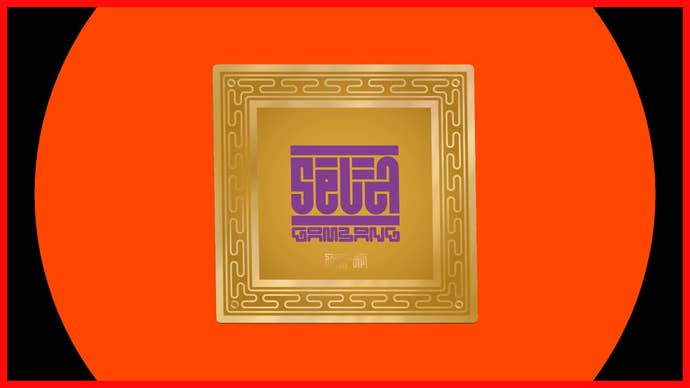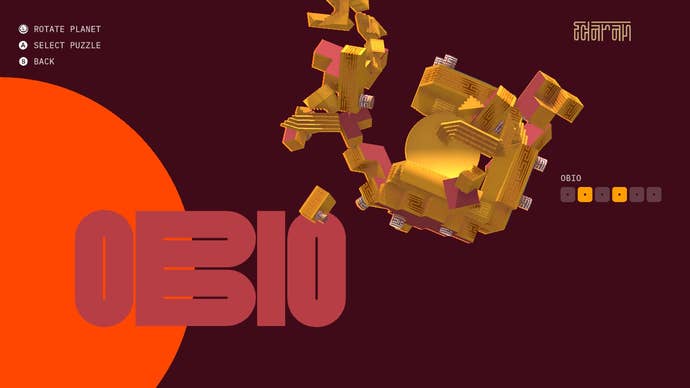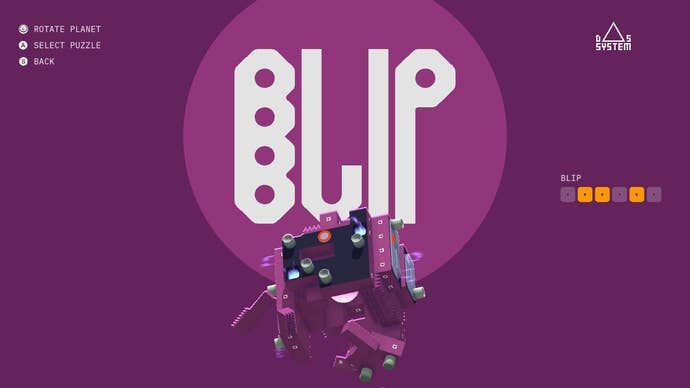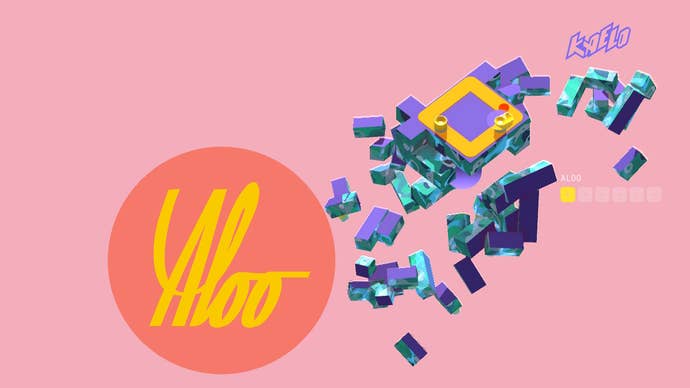We know the verses and we know the chorus.
We know what to expect in general - or we think we do.
And then, suddenly we’re somewhere else.
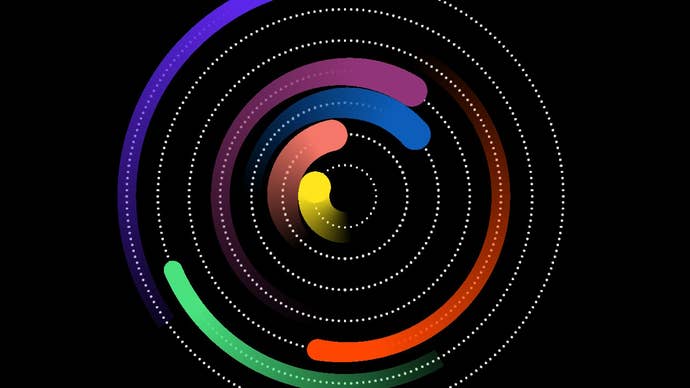
Elvis is drying the tears from our eyes.
A familiar theme, but now it’s strange and inverted.
Slowed, sped up, twisted in on itself.

Oh yes, this is what’s happening back at the ranch.
Not every song has a middle eight, and not every song needs one.
These paths are mazes, really.

The “eight” itself isn’t important though.
Rytmos is a musical puzzle game.
It needs to be held in the hands.

It needs the tangibility and special force of imagination that handheld games encourage.
The idea is simple.
Each level gives you a starting point and a number of towers poking out of the ground nearby.

Listen: Rytmos is an excellent puzzle game.
One of the best I’ve played in ages.
Rytmos has a load of ideas like this, but it allows them to remain playful rather than infuriating.

Anyway, this is not something I felt with Rytmos.
And that’s the key here.
So Rytmos is easy?

That’s not quite right.
The puzzles don’t want to interrupt the music you’re all collaborating on.
As I played, I felt the game was actively encouraging me to be more curious about this stuff.

Finish one puzzle and more surfaces slip into place with their own puzzles.
Each star has three planets, which means three suites of puzzles, and also three pieces of music.
Crucially, though, each star is themed.

Rytmos uses the galaxy to take us around the world in terms of music.
So there’s a star where you’re playing with Hawaiian music from the mid-twentieth century.
There’s a star where you’re exploring the traditional Gamelan music of Indonesia.
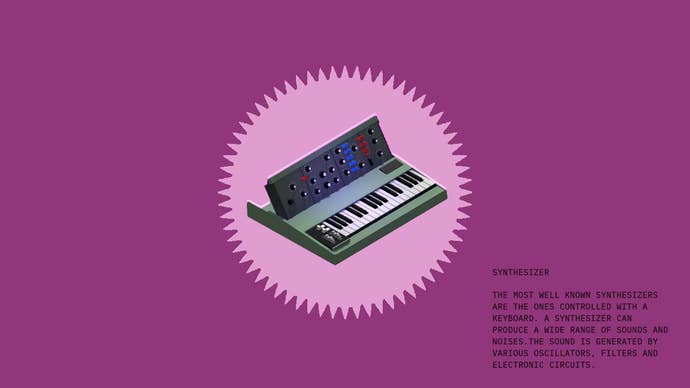
That suite of levels with the teleporters is, of course, German electronic music from the seventies.
A whole solar system of Neu!
Your reward for each planet you complete is an instrument to have a play around with.

Rytmos gave me some stuff I was familiar with - surfy Hawaiian guitars and all that Neu!
To wondering how disparate things connect and how they came to be.

